Shows

What in the WorldDoes birth order shape your personality?We’ve spotted some of you on your socials talking about eldest sibling vs youngest sibling behaviour. It got us wondering if when you’re born can affect personality, relationships and outlook on life. We all know the stereotypes; the eldest child is more conscientious and responsible. The middle child gets overlooked and craves attention. The youngest is indulged and a risk-taker. Personality psychologist Julia Rohrer, from Leipzig University in Germany breaks down what’s science and what’s fiction.We hear the experiences from three of our BBC pals; Faith Oshoko in Nigeria, Santiago Vanegas Maldonado from Col...
2026-02-1713 min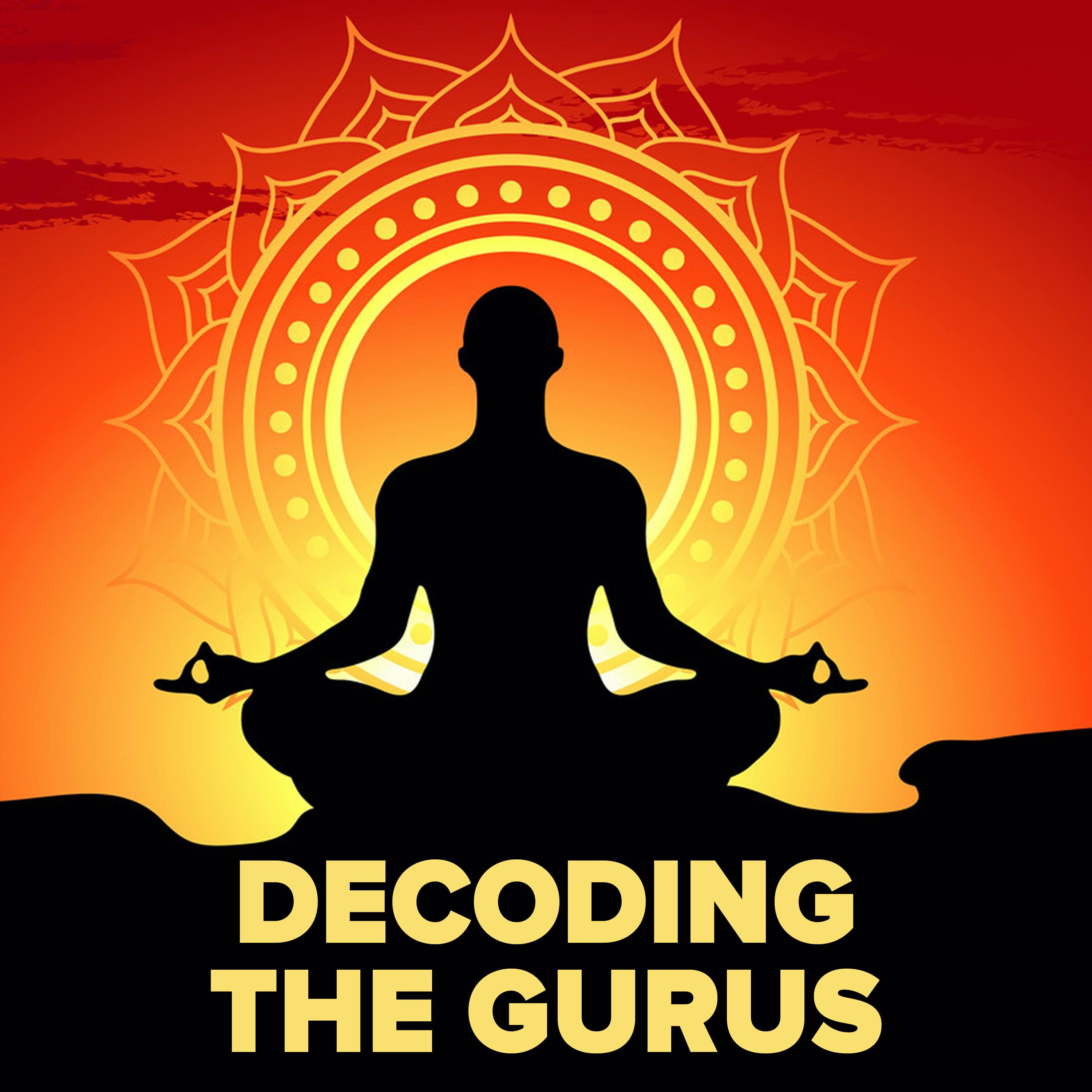
Decoding the GurusOpen Science, Psychology, and the Art of Not Quite Claiming Causality with Julia RohrerIn a rare departure from our usual diet of online weirdos, this episode features an academic who is very much not a guru. We’re joined by Julia Rohrer, a psychologist at Leipzig University whose work straddles the disciplinary boundaries of open science, research transparency, and causal inference. Julia is also an editor at Psychological Science and has spent much of the last decade politely pointing out that psychologists often don’t quite know what they’re estimating, why, or under which assumptions.We talk about the state of psychology after the replication crisis, whether open science reform...
2026-01-301h 32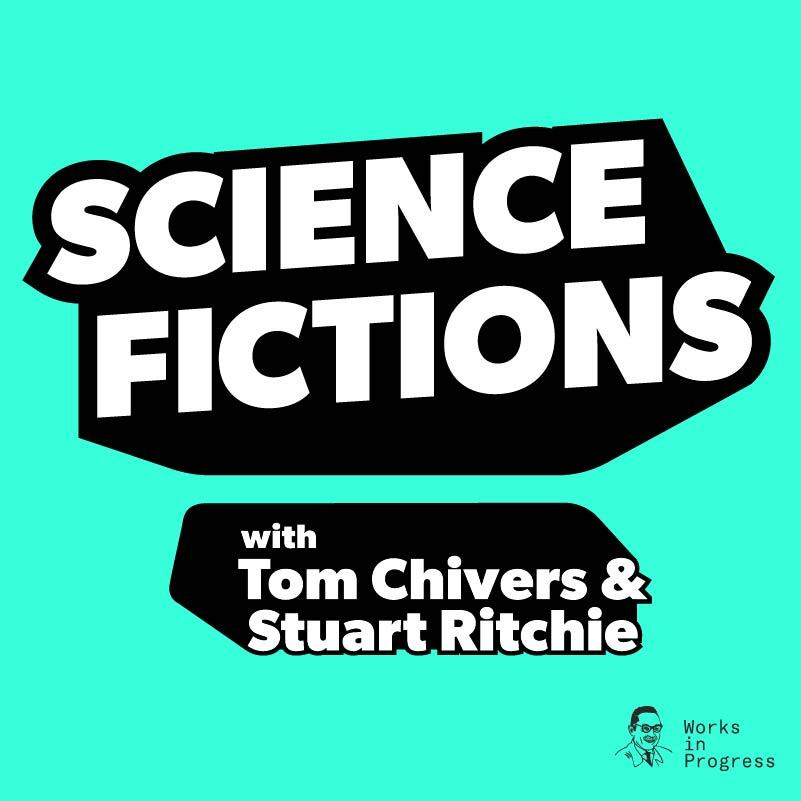
Science FictionsEpisode 93: Many analystsHere’s a cheery one for our first episode of the year. Guess what happens when you give several sets of scientists the same dataset and ask them to answer the same question? Well, they all find the same results, right? Right!?Sadly not. This “Many Analysts” problem has been analysed and debated in multiple different scientific fields and across several papers. We cover them in this episode. What does it tell us about the objectivity of science if different teams draw different conclusions from the exact same data?The Science Fictions podcast is brought to you...
2026-01-131h 18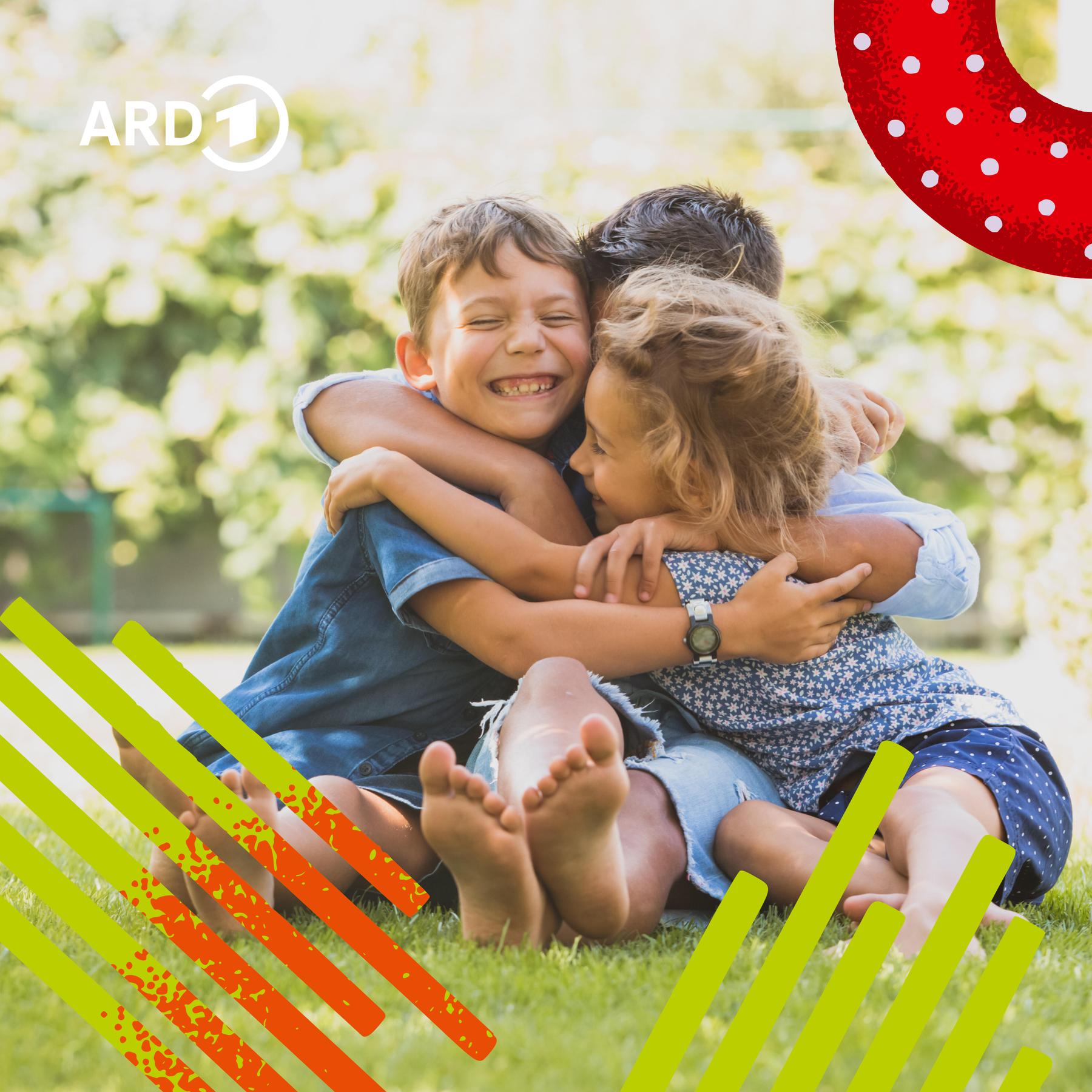
Wie wir ticken - Euer Psychologie PodcastGeschwister - Wie uns Brüder und Schwestern prägenDie aufopfernde große Schwester. Das verwöhnte Nesthäkchen. Das egoistische Einzelkind. Manche Klischees über Geschwister stimmen nicht. Doch Schwester und Brüder prägen uns - und bleiben ein Leben lang. Ein Podcast von Marisa Gierlinger.CreditsAutorin dieser Folge: Marisa GierlingerRegie: Günter MaurerSprecherin: Elisabeth FindeisRedaktion: Vera Kern
Im Interview:Hildegard Botzenhardt, Neu-Ulm, hat viele GeschwisterÜnsal Mutlu, Gastwirt, LangenauÜmit Mutlu, Gastwirt, LangenauJochen Rögelein, Familientherapeut in MünchenDr. Jürg Frick, Psychologe und Geschwisterforscher, SchweizDr. Julia Ro...
2025-11-2129 min
Science FictionsEpisode 88: WellbeingMaybe it’s the most important thing any scientist can study: what makes people happy? The trouble is, despite the importance, a lot of the science on “wellbeing” tends to be very rickety.But did you know that even one of the best-known findings of wellbeing research—the midlife crisis, or “inverted U shape” of happiness over the lifespan—has been questioned? In this episode we discuss the controversy.The Science Fictions podcast is brought to you by Works in Progress magazine. At worksinprogress.co you can read issue after issue of fascinating articles bursting with ideas on...
2025-10-2153 min
Causal Bandits PodcastCausal Inference, Human Behavior, Science Crisis & The Power of Causal Graphs | Julia Rohrer S2E5 | CausalBanditsPodcast.comSend us a text*Causal Inference From Human Behavior, Reproducibility Crisis & The Power of Causal Graphs*Is Jonathan Heidt right that social media causes the mental health crisis in young people?If so, how can we be sure?Can other disciplines learn something from the reproducibility crisis in Psychology, and what is multiverse analysis?Join us for a conversation on causal inference from human behavior, the reproducibility crisis in sciences, and the power of causal graphs!------------------------------------------------------------------------------------------------------Audio version available on YouTube: https://youtu.be...
2025-06-041h 21
Theater ahoyTheater ahoy - Romeo und Julia / Der Untergang des Hauses Usher / Klangfestinkl. Interview mit Schauspielerin Linda Rohrer
Was geht ab auf Hamburgs Theaterbühnen? Das erzählt euch jede Woche aufs Neue die "Theater ahoy"-Moderatorin Mandy. Und in dieser Folge geht es um:
- "Romeo und Julia" am Ernst Deutsch Theater
- "Der Untergang des Hauses Usher" von Bühne Cipolla am Altonaer Theater
- Das Klangfest auf Kampnagel
Die Folge ist vom 14. April 2025.
2025-04-1404 min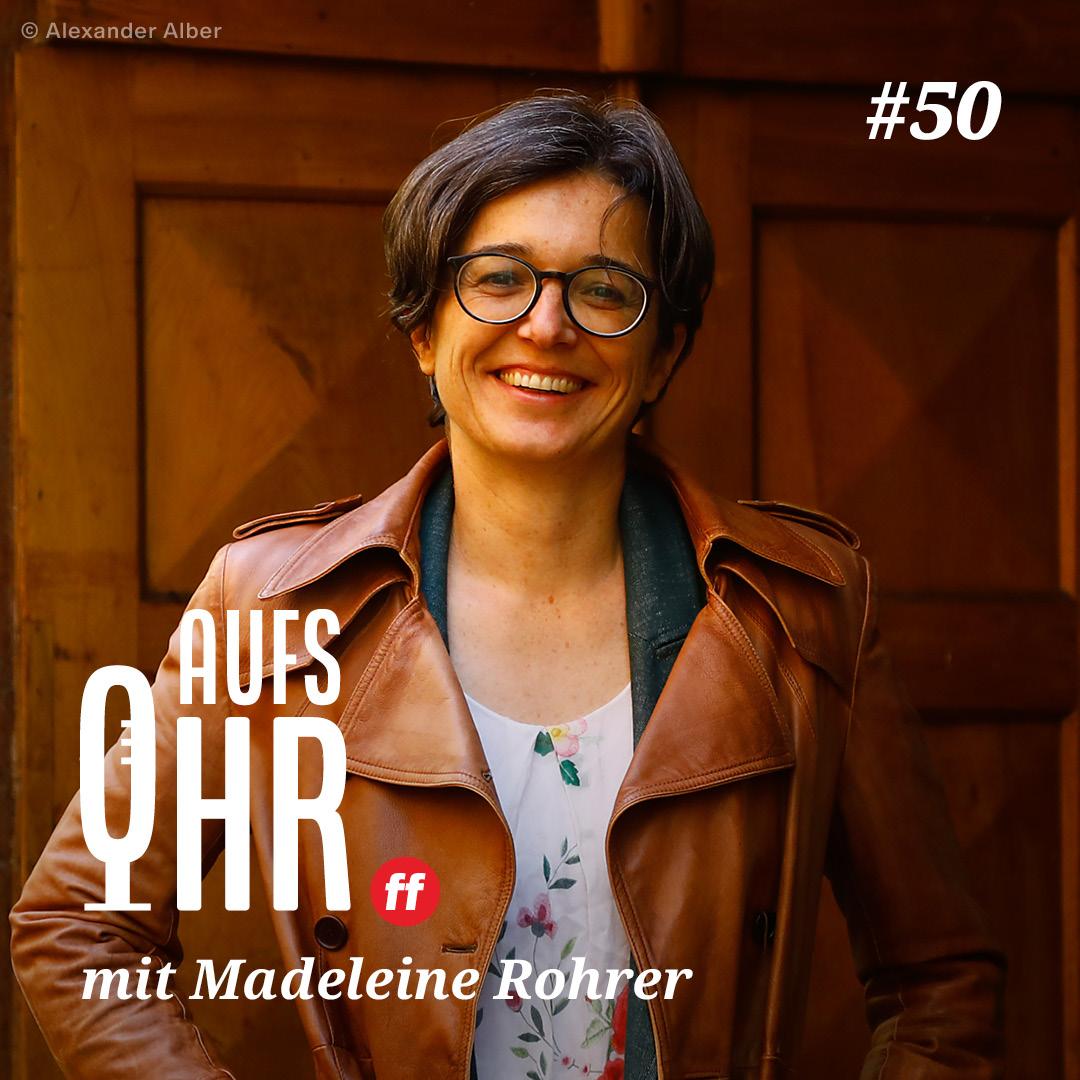
Südtiroler Wochenmagazin ff – Aufs OhrMadeleine Rohrer: Verlieren wir die Konzession der A22?Madeleine Rohrer, die Landtagsabgeordnete der Grünen, über die Vergabe der Konzession für die Brennerautobahn
Die Vergabe der Konzession für die Brennerautobahn ist für Südtirol eines der wichtigsten politischen Themen der letzten Jahre. Seit über zehn Jahren heißt es: die neue Ausschreibung kommt – aber dann kommt sie doch wieder nicht. Ende Dezember des vergangenen Jahres veröffentlichte der Staat schließlich die lang erwartete Ausschreibung, Landeshauptmann Arno Kompatscher sprach von einem „Projekt zum Wohle der Region.“ Es dauerte aber nicht lange und schon gab es wieder Probleme. Möglich also, dass die A22 künftig in auswärtig...
2025-03-0625 min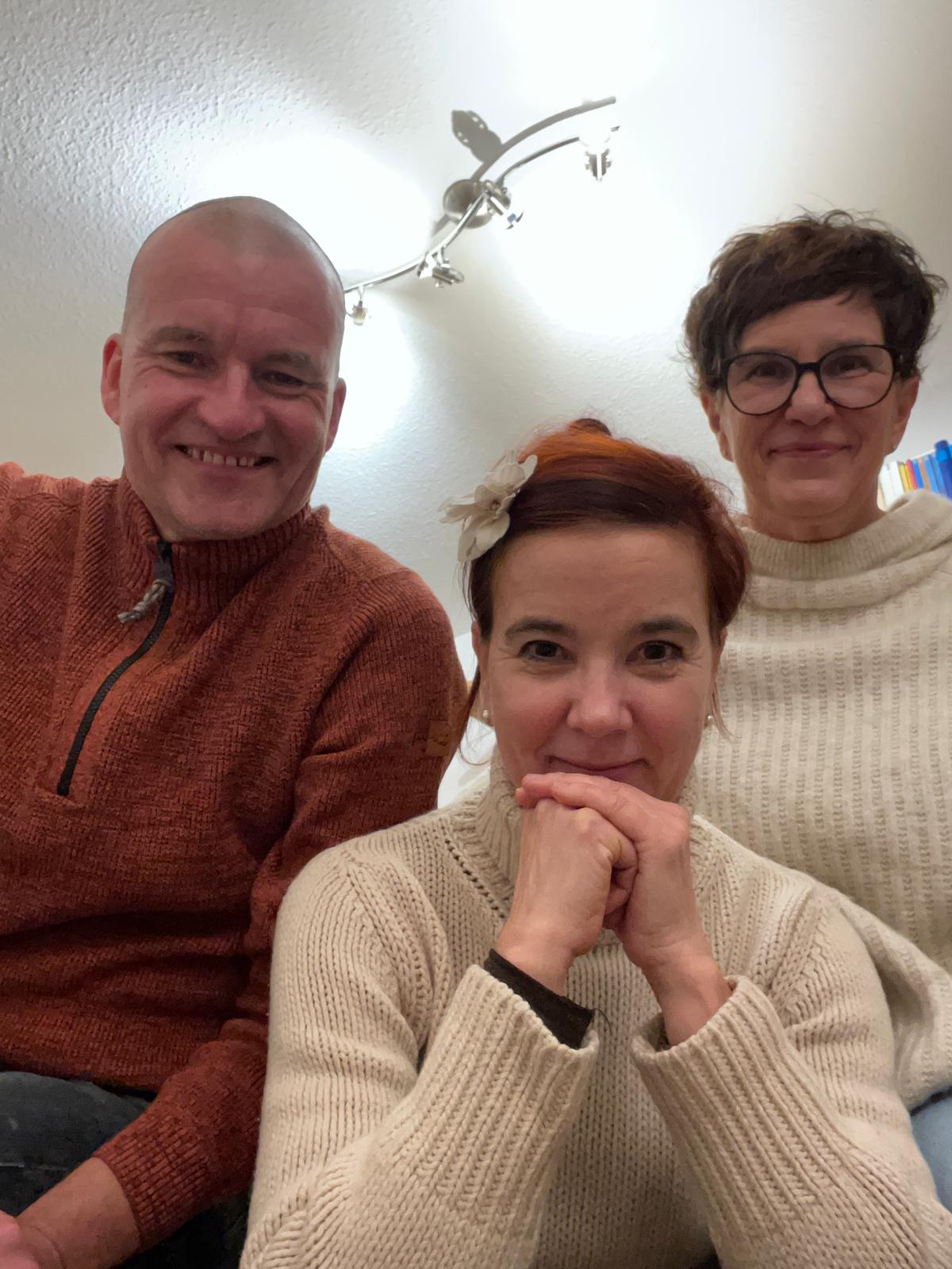
Heinermania - der Podcast für DarmstadtWas ist los in der Darmstädter Szene? Kultur zwischen Osthang, Uni und Pop-up-StoresJulia Reichelt vom Kunstforum der TUD: "Der Nachwuchs braucht mehr Freiräume"
Julia Reichelt ist Leiterin des Kunstforums der TU Darmstadt. Ihr Lieblingskunstwerk im öffentlichen Raum ist der "Rollercoaster" vom Stuttgarter Künstler Stefan Rohrer. Zu sehen sind zwei Vespa-Roller, die umeinander wirbeln - und zwar auf dem Campus Stadtmitte, im Innenhof östlich der Otto-Berndt-Halle. Ein kleiner Abstecher lohnt sich allemal: Erreichbar ist das Kunstwerk über den Durchgang Alexanderstraße oder vom Vorplatz der Universitäts- und Landesbibliothek aus.
Weitere Infos zum Kunstforum gibt es hier: https://www.tu-darmstadt.de/kunstforum/. Weitere Highlights:
"I heard the sou...
2025-01-0832 min
Science FictionsEpisode 57: Collider biasAmong patients hospitalized for COVID, smokers had better outcomes. Among people with cardiovascular disease, those with obesity live longer. Among NBA basketballers, taller players don’t do any better. These are all facts. But the interpretation you might immediately draw is completely wrong.It turns out that these findings (and many more) might be due to the weird and under-discussed phenomenon of “collider bias”. Everyone who’s interested in scientific methods knows what a confounder is—but do they know what a collider is? In this episode of The Studies Show, Tom and Stuart attempt to explain.We’re...
2024-11-261h 00
Science WeeklySummer picks: what does the science say about birth order and personality?We all know the cliches about older siblings being responsible, younger ones creative, and middle children being peacemakers. But is there any evidence our position in the family affects our personality? In this episode from March 2024, Madeleine Finlay meets Dr Julia Rohrer, a personality psychologist at the University of Leipzig, to unpick the science behind birth order. Help support our independent journalism at theguardian.com/sciencepod
2024-08-2016 min
Science WeeklySummer picks: what does the science say about birth order and personality?We all know the cliches about older siblings being responsible, younger ones creative, and middle children being peacemakers. But is there any evidence our position in the family affects our personality? In this episode from March 2024, Madeleine Finlay meets Dr Julia Rohrer, a personality psychologist at the University of Leipzig, to unpick the science behind birth order. Help support our independent journalism at theguardian.com/sciencepod
2024-08-2017 min
Aha! Zehn Minuten Alltags-WissenGeschwister — Das bedeutet die Reihenfolge für die PersönlichkeitWissenschafts-Podcast
Einzelkinder sind verwöhnt, Sandwich-Kinder schwierig und Nesthäkchen verweichlicht. So lauten einige der Klischees über die Persönlichkeiten von Geschwistern.
Aber stimmen sie wirklich? Macht es für unsere Persönlichkeit einen Unterschied, ob wir als erstes, zweites oder vielleicht auch drittes oder viertes Kind geboren wurden? Und was, wenn wir gar keine Geschwister haben?
Antworten auf diese Fragen hat die Persönlichkeitspsychologin Dr. Julia Rohrer von der Universität Leipzig.
Hier findet Ihr zwei Studien zur Frage, was die Geschwisterrolle für Auswirkungen auf die Persönlichkeit hat:
https://pubmed.ncbi.nlm.nih.gov/26956710/
https://li...
2024-08-2012 min
Science WeeklyClassic older child? What the science says about birth order and personalityWe all know the cliches about older siblings being responsible, younger ones being creative, and middle children being peacemakers. But is there any evidence our position in the family has an impact on our personality? Madeleine Finlay meets Dr Julia Rohrer, a personality psychologist at the University of Leipzig, to unpick the science behind our intuition about birth order. Help support our independent journalism at theguardian.com/sciencepod
2024-03-0516 min
Pro und ContraKonnte Andreas Babler überzeugen?Pro und Contra Spezial vom 19.9.2023
In einem „Pro und Contra Spezial“ analysieren in Anschluss an das Bürgerforum mit SPÖ-Chef Andreas Babler die politischen Vertreter:innen von SPÖ und NEOS sowie eine Journalistin das politische Interview und den Austausch am Stammtisch.
Gäste:
Julia Herr, stv. Klubobfrau, SPÖ
Nikolaus Scherak, stv. Klubobmann, NEOS
Anneliese Rohrer, Kolumnistin, Die Presse
Moderation: Gundula Geiginger
2023-09-2849 min
The ModernsThe Moderns ep. 281Contemporary music from everywhere, with host Kevin Press. Three full hours of new music this week, featuring Midori Takada, Christina Rusnak and DOLE FAM. Full program:
João Paulo Esteves da Silva Trio - The House Behind 0.00
Daniel De Togni - Rain on the Wind 6.13
Carlos Ferreira - Living a Metaphor (feat. Lucas Protti) 11.25
John Ritz - Rust 16.45
Matthew Shipp - Crystal Structures 25.17
The Pitch & Julia Reidy - Neutral Star 30.55
Brutter - Twin Outta 53.24
Gift Horse - The Sparkling Trough 58.15
Midori Takada - The Memory of the Water 1.01.20
Nemokai - Kombaneira 1.12.47
Illuha - Tsukubai 1.15.21
Louis Jucker & Le Nouvel Ensemble Con...
2023-09-243h 02
The Vision Podcast 3.0JEFF ROHRER former NFL player for Dallas Cowboys. Entrepreneur.On todays episode ...Jeff Rhorer is a former American Football linebacker for the Dallas Cowboys. He played college football at Yale University and was drafted in the second round of the 1982 NFL draft. He is a father, husband, and business man. Following NFL he moved into the entertainment industry shotting TV commercials including winning awards in Cannes and other festivals. Jeff is also the first known former pro football player to tie the knot in the same sex marriage Quick fire round of light questions except one. Best advice given "You live by your wo...
2023-06-1246 min
Was wichtig istViel zu tun für Andreas Babler: Kann der Neue die SPÖ aus dem Chaos führen?
Andreas Babler hat die Wahl als Parteivorsitzender angenommen. Was ist von dem progressiven Linken zu erwarten? Wird er die Partei einen und der SPÖ Wahlen gewinnen? Diese Fragen und seine erste Rede als SPÖ-Chef analysiert Julia Wenzel.
Gast: Julia Wenzel, Die Presse
Host: Anna Wallner
Schnitt: Audiofunnel/Georg Gfrerer
Credits: ORF
Mehr zum Thema:
"Presse"-Video: Anneliese Rohrer und Florian Asamer im Talk
Michaela Grubesa tritt zurück
Jakob Zirm: Mit Andreas Babler vollgas zurück in die 70er Jahre
Hat Ihnen dieser Podcast gefallen? Wenn Sie noch mehr von uns hören w...
2023-06-0620 min
Wie Wissen schafft - der Podcast über Wissenschaftskommunikation mit Momo und MaxTobias Dienlin - „Ein Plädoyer für Open Science“
In der ersten Folge mit einem Gast von unserem Wissenschaftskommunikationspodcast reden wir mit Ass.-Prof- Dr. Tobias Dienlin. Seine Forschungsschwerpunkte sind unter anderen Privacy, Wohlbefinden, Social Media und Open Science. Aber was ist Open Science und wo ist die Verbindung zur Wissenschaftskommunikation? Tune in!
Ass.-Prof- Dr. Tobias Dienlin
Genannte Twitter Accounts in der Folge:
Julia Rohrer @dingding_pengDaniel Lakens @lakensThai Nguyen-Kim @maithi_nk
Agenda-Paper: An Agenda for Open Science in Communication
2022-07-1555 min
Two Psychologists Four BeersThe C-Word (with Julia Rohrer)Personality psychologist and methodologist Julia Rohrer joins the show to talk about causal claims, strategic ambiguity, and how tough it is to tell what empirical claims many psychology papers are making. To illustrate, we subject Yoel's first paper, "Conservatives are more easily disgusted than liberals," to some vigorous post-publication peer review. We also discuss what makes Julia most hopeful about psychology, as well as the recent progress in alcohol-free beer.Special Guest: Julia Rohrer.Links:Two Psychologists Four Beers on UntappdWho would win, 100 duck-sized strategic ambiguities vs. 1 horse-sized structured abstract? – The 100% CIPsyArXiv Preprints | The On...
2022-02-091h 26
Two Psychologists Four BeersBeyond ExperimentsAlexa and Yoel talk about a paper purporting to show that winning the Nobel Prize increases your lifespan. In the process, they dip their toes into non-experimental causal inference and discuss whether there is a taboo in psychology about drawing causal conclusions from non-experimental data. Plus, Yoel does his best to explain what an instrumental variable is and Alexa drinks a very large beer.Links:Two Psychologists Four Beers on UntappdThe Taboo Against Explicit Causal Inference in Nonexperimental Psychology - Michael P. Grosz, Julia M. Rohrer, Felix Thoemmes, 2020Instrumental Variables in Sociology and the Social Sciences...
2021-11-031h 07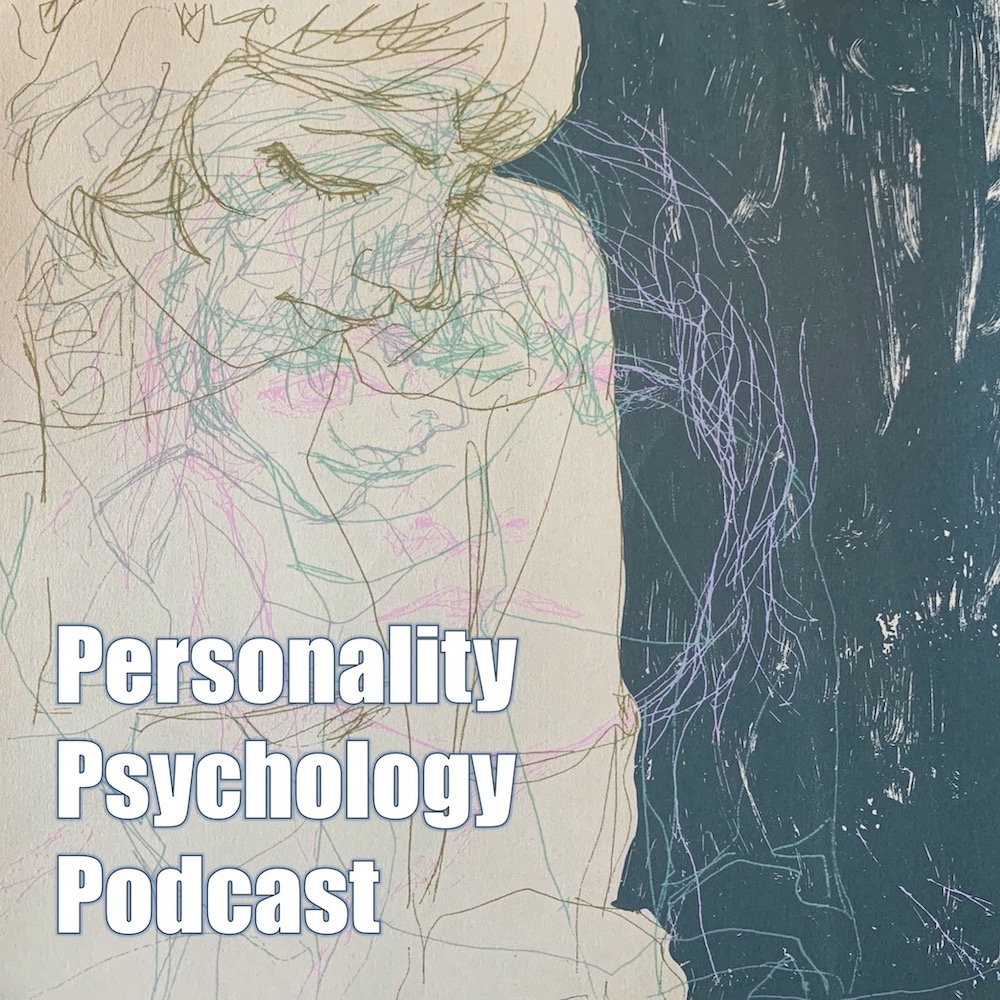
Personality Psychology Podcast#1 Introducing personality psychology with Julia Rohrer & Jaap DenissenWelcome to our podcast! For this episode, René Mõttus talked to Julia Rohrer and Jaap Denissen about what personality is, how personality psychology is unique as a field, and what its most significant achievements have been so far—but also about what is still puzzling and what can be improved for the future.
2021-01-2551 min
The Black GoatJoe Public, Will You Marry Me?In recent years there has been a lot of talk about public trust in science - how much there is, in what ways, whether we deserve it or not. In this episode, we discuss an article by historian and philosopher Rachel Ankeny that asks whether "trust" is even the right concept to be talking about. What does it mean to trust an abstraction like "science"? When people argue about trust in science, are they even talking about the same thing - the findings, the people, the process, or something else? And we discuss Ankeny's proposed alternative: that instead of...
2020-04-011h 00
The Black GoatJust Be CauseMany important questions about cause and effect are impractical to answer with a randomized experiment. What should we do instead? In this episode we talk about doing causal inference with observational data. Has psychology's historical obsession with internal validity led it, ironically, to think about causal inference in an unsophisticated way? Can formal analytic tools like directed acyclic graphs (DAGs) tell us how to do better studies? Or is their main lesson don't bother trying? How do norms and incentives in publishing help or hurt in doing better causal inference? Plus: We answer a letter about applying to psychology...
2020-03-211h 07
Two Psychologists Four BeersPerils of PrivilegeYoel and Mickey discuss the concept of privilege, the unearned, sometimes invisible conditions of a person’s life that give them advantages that others might not have. What are the benefits of acknowledging one’s privilege and calling it out in others? Are there drawbacks to focusing on the immutable characteristics of a person that might normally proffer advantages? If all our characteristics are unearned, that is products of biology and environment that we have zero control over, should people be praised or blamed for them? But, first, they discuss new internal analyses by Google suggesting it has been over...
2019-04-241h 06
The Black GoatOur Best Episode EverSelf-promotion: the idea makes some people cringe and others salivate. In this episode, we talk about self-promotion in academic science. What amount - and maybe more importantly, what kind - is right? Why do some people shy away from it while others dive in? What even counts as self-promotion? Is it a luxury to be able to do without active self-promotion? How do cultural and other differences play into self-promotion? Plus: We answer a letter about bringing open science practices into clinical psychology.
Links:
Leveraging the open science framework in clinical psychological assessment research, by Jennifer...
2019-02-201h 04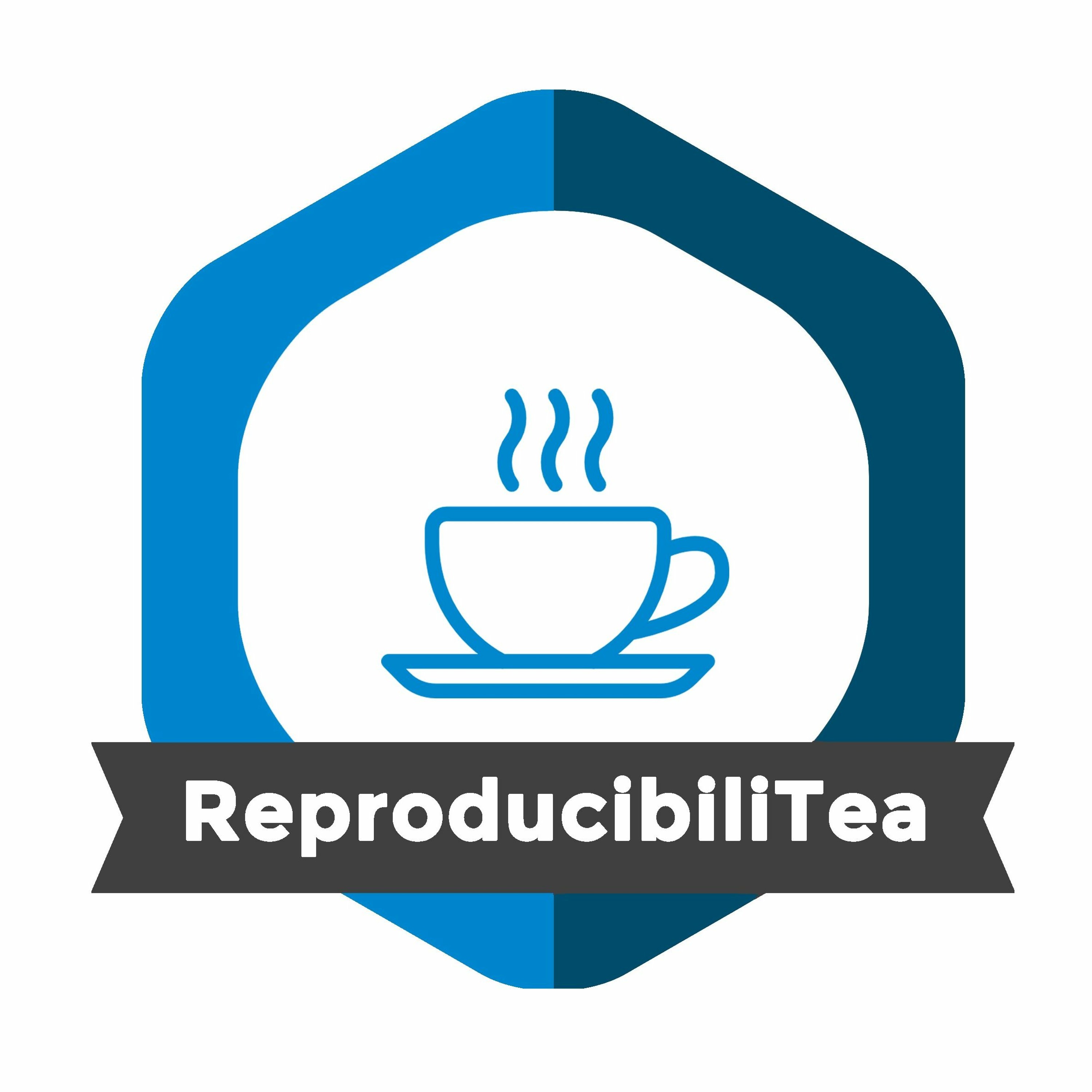
ReproducibiliTea PodcastEpisode 13 - Fighting The Impostor (syndrome)Episode 13 – Fighting the impostor (syndrome)
Hello 2019! Amy, Sophia, and Sam discuss impostor syndrome. While Sam was concerned this would leave him wanting to hide under the desk and cry-eat chocolate for the rest of the day, it turned into an unexpectedly uplifting talk.
Get in touch with your experiences; what helps? what makes it worse? how can we help each other?
Just a few links:
We should all feel a bit more like impostors – Julia Rohrer - http://www.the100.ci/2018/08/02/we-should-all-feel-a-bit-more-like-impostors/
Sam’s old, early blog post on what impostor syndrome feels like https://samdparsons.blogspot.com/2017/10/students-questions-4-what-is-imposter.html
2019-01-2244 min
ReproducibiliTea PodcastSpecialiTEA 3 - Julia RohrerSpecialiTea 3: Julia Rohrer
We talk to Julia Rohrer (@dingding_peng)about her blog, skills training as a PhD and what doesn’t get talked about enough in the Open Science Community. You can find her amazing blog here: http://www.the100.ci, where she is joined by Anne Scheel (@annemscheel), Ruben Arslan (@rubenarslan) and Malte Elson (@maltoesermalte).
We want to note that this podcast had the world’s most WEIRDEST Skype setup as we forgot our headphone splitters. This meant that both Amy and Sophia were using separate headphones and were on muted Skype calls to each other while Sam was...
2018-08-2838 min
The Black GoatMoving alongMoving is a big part of academic life, and in this episode we talk about our own experiences and how it affects the culture of academia. How do you decide whether and where you’re willing to move? What are all the things you have to deal with? How do you adjust? How does the fact that so many people move for academia affect the culture of it (e.g., at a university almost all the faculty are from somewhere else; or the way conferences function as mini reunions with your friend circles)? Plus: We answer a letter about whe...
2018-02-211h 09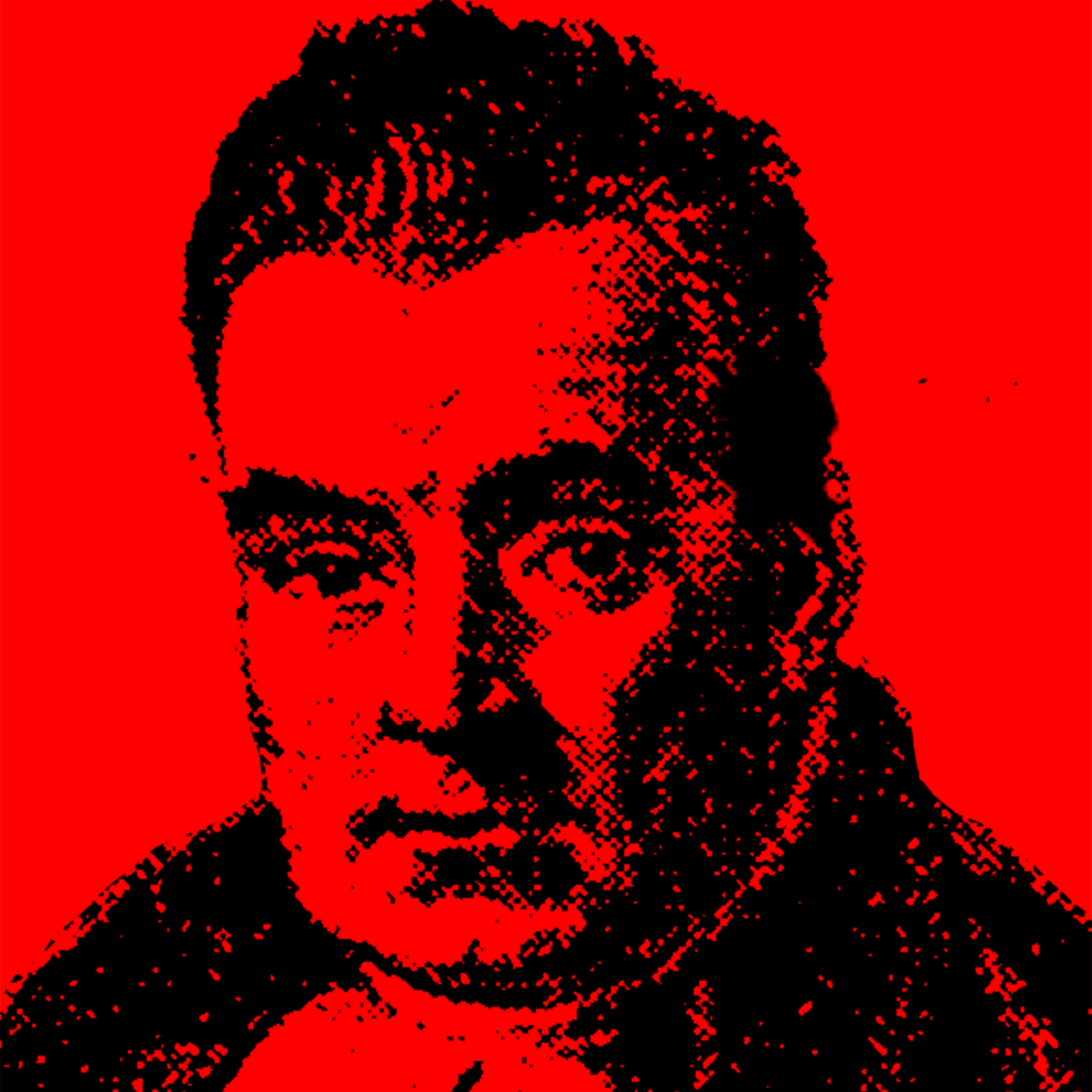
The Bayes FactorJulia Rohrer and Anne ScheelIn this third episode, Alex interviews two PhD students, Julia Rohrer and Anne Scheel. They discuss their experiences in the science reform movement, how cultural differences can shape reactions to reform efforts, and the controversy surrounding their group blog.
2017-11-2355 min
Naked Scientists Special Editions ENHANCEDIs personality linked to birth order? - Naked Scientists Special Editions 15.10.24There have been many exaggerated reports this week that birth order, whether you are a first or last born, affects how intelligent you will be compared to your siblings. However, the researchers at the University of Leipzig found that this difference in intelligence is very small and the more important finding was about birth order and personality. Charis Lestrange spoke with lead author Julia Rohrer to find out more.
2015-10-2404 min
Naked Scientists, In Short Special Editions PodcastIs personality linked to birth order?There have been many exaggerated reports this week that birth order, whether you are a first or last born, affects how intelligent you will be compared to your siblings. However, the researchers at the University of Leipzig found that this difference in intelligence is very small and the more important finding was about birth order and personality. Charis Lestrange spoke with lead author Julia Rohrer to find out more. Like this podcast? Please help us by supporting the Naked Scientists
2015-10-2404 min